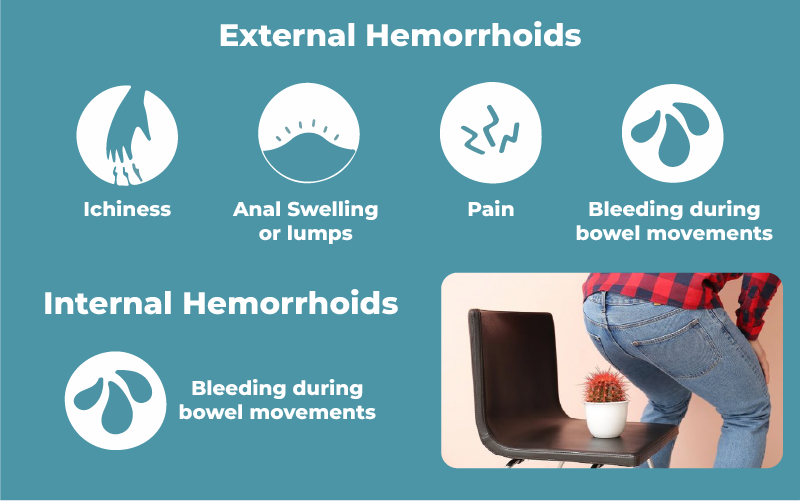As we age, many aspects of our health can change, and unfortunately, hemorrhoids are one condition that can become more prevalent and problematic. Hemorrhoids, also known as piles, are swollen veins in the lowest part of the rectum and anus. When the walls of these blood vessels stretch, they become irritated and often painful. While hemorrhoids can affect people of all ages, they tend to get worse with age for several reasons. Understanding these reasons can help in managing and preventing the condition effectively.
The Anatomy and Function of Hemorrhoids
Before delving into why hemorrhoids worsen with age, it’s important to understand what they are and their role in the body. Hemorrhoids are a normal part of human anatomy and help to control stool. They act as cushions composed of blood vessels, connective tissue, and some muscles. However, when these veins become enlarged, they can cause discomfort and other symptoms such as itching, pain, and bleeding.
Causes of Hemorrhoids Worsening with Age
- Weakening of Connective Tissues: As we age, the connective tissues in the body, including those in the rectum and anus, tend to weaken. This weakening can cause the hemorrhoidal cushions to lose their support, making them more prone to swelling and irritation.
- Decreased Physical Activity: Older adults often engage in less physical activity due to various health conditions or simply a decrease in energy levels. Reduced physical activity can lead to poor blood circulation, which can contribute to the development and exacerbation of hemorrhoids.
- Chronic Constipation: Constipation is a common issue among older adults, often due to dietary changes, medication side effects, and reduced bowel motility. Straining during bowel movements puts extra pressure on the hemorrhoidal veins, leading to swelling and irritation.
- Dietary Changes: As people age, their dietary habits often change, sometimes leading to a lower intake of fiber. A diet low in fiber can result in harder stools and more straining during bowel movements, both of which can aggravate hemorrhoids.
- Dehydration: Older adults are more prone to dehydration, which can lead to harder stools and constipation. Proper hydration is essential for maintaining soft stools and preventing straining.
- Increased Incidence of Health Conditions: Conditions such as obesity, liver disease, and heart disease become more common with age and can increase the risk of hemorrhoids. These conditions can lead to increased pressure on the blood vessels in the rectal area, contributing to hemorrhoid formation and worsening.
Preventive Measures and Management
While the likelihood of developing hemorrhoids increases with age, several measures can be taken to manage and prevent them:
- Maintain a High-Fiber Diet: Eating plenty of fruits, vegetables, and whole grains can help ensure soft, bulky stools, reducing the need for straining during bowel movements.
- Stay Hydrated: Drinking plenty of water throughout the day helps to keep stools soft and easier to pass.
- Regular Exercise: Engaging in regular physical activity can help improve bowel function and reduce the risk of constipation.
- Avoid Prolonged Sitting: Sitting for long periods, especially on the toilet, can increase pressure on the veins in the anus and rectum. Taking breaks to stand and move around can help alleviate this pressure.
- Use the Bathroom Promptly: Delaying bowel movements can lead to harder stools and increased straining. It’s important to go to the bathroom as soon as you feel the urge.
- Over-the-counter remedies: There are various over-the-counter creams, ointments, and suppositories that can help relieve hemorrhoid symptoms. However, it’s always best to consult with a healthcare provider before using these products.
- Medical Procedures: In severe cases, medical procedures such as rubber band ligation, sclerotherapy, or surgical removal may be necessary. These treatments are typically considered when other measures have not been effective.
Conclusion
Aging is a natural process that can bring about various health challenges, including the worsening of hemorrhoids. However, by understanding the factors that contribute to this condition and taking proactive steps to manage and prevent it, older adults can maintain better comfort and quality of life. Always consult with a healthcare provider for personalized advice and treatment options tailored to individual needs.

